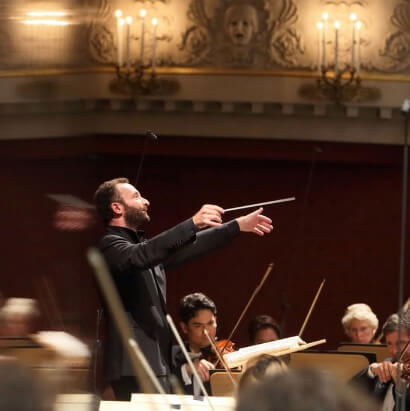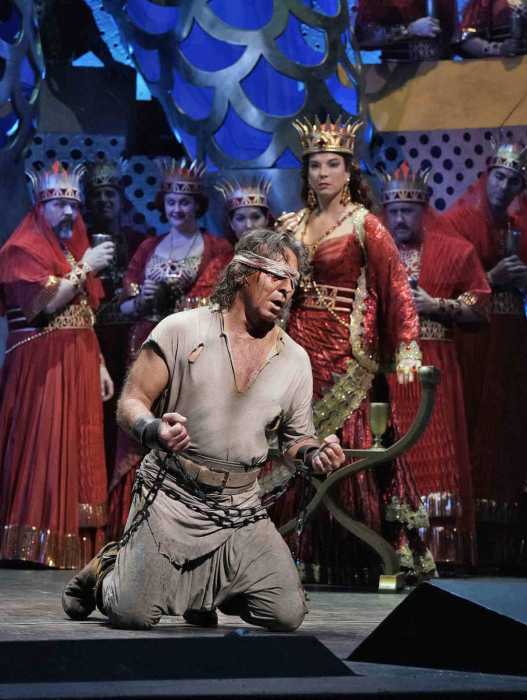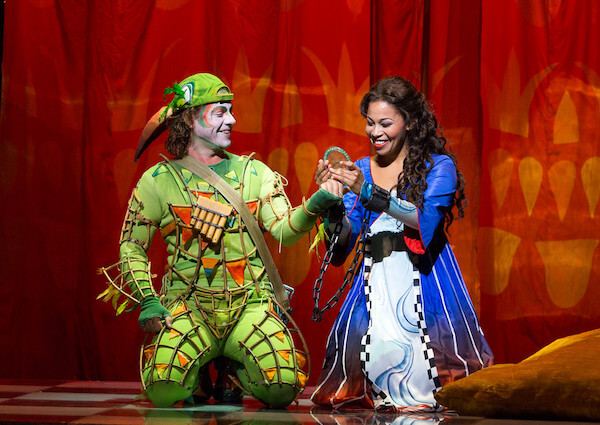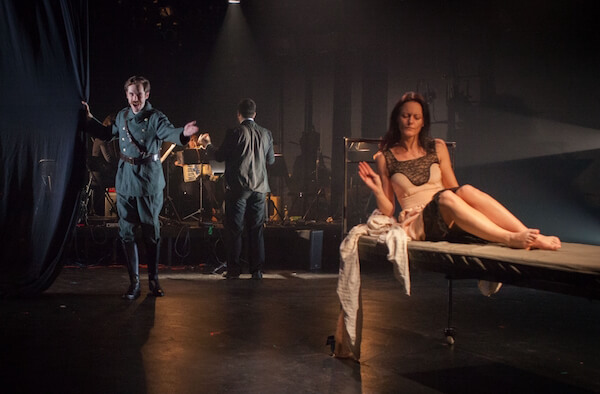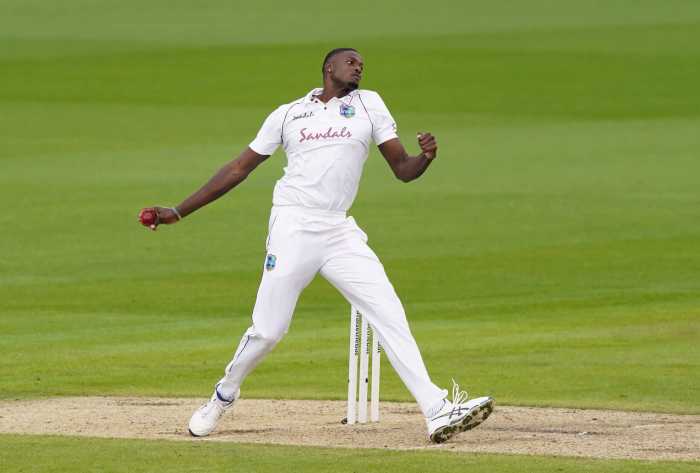Joshua Hopkins was outstanding in an otherwise disappointing “Roméo et Juliette” at the Met. | KEN HOWARD/ METROPOLITAN OPERA
Bartlett Sher’s supernumerary-loaded, sleepy staging of “Roméo et Juliette” sank fairly perilously April 23 under the indiscriminate, pace-deadening conducting of Plácido Domingo. There are reasons audiences want to hear Domingo’s compromised but still firm, energetic singing, but his conducting has always at best mediocre — an abuse of his industry influence — and it is scandalous that major companies continue to engage him in this capacity. The players reportedly did what they could to help, but it was not enough to enliven Gounod’s pretty but episodic score.
Gounod does best by the lovers, but this night won’t pass into the history books. Bryan Hymel having withdrawn, the very plausible Charles Castronovo was announced. He fell ill, leaving the cover, South Korea’s Andrea Shin — who sang the dress rehearsal — to make his company debut in this long, difficult starring role. Given the pressure, Shin did a thoroughly professional and fairly decent job. Opaque initially, the voice gained some quality and projection, though rarely the needed airy quality at the top. Unlike Hymel and especially Castronovo, he doesn’t command French phrasing or diction with any distinction. Understandably, he proved somewhat bland interpretively, but he (and his Juliette, Ailyn Pérez) handled a tough situation with aplomb.
Seven years ago in Philadelphia, the physically lovely Pérez offered a fine Juliette once she got past Act One’s coloratura hurdles. Here, the entrance and waltz song remained shrieky and awkward and — despite much warm, beautiful lyric tone — she seems to have moved beyond the role. Turns and corners — plus, too often, pitch — showed slippage. Perez has done Desdemona and has the “Ernani” Elvira slated, surely better turf for her at present.
The evening offered only two outstanding performances: the lively, sexy, rich-voiced Mercutio of Joshua Hopkins and the musically and linguistically ideal Stephano of Karine Deshayes. Kwangchul Youn has a world-class bass but wobbled overmuch as Frere Laurent. A second debutant, Russia’s Bogdan Volkov (Tybalt), showed some promising tenor metal, though high notes tended to blare; he may well settle in usefully. Laurent Naouri’s vocally miscast Capulet — some hints of Gallic style aside — was a disaster.
Juilliard’s visually and musically attractive staging of Rameau’s 1733 “Hippoltye et Aricie” (heard April 19) was welcome in many ways, but — as so often in Europe — played some irresponsible variants on a work nearly completely unknown to the audience. Stephen Wadsworth knows a lot about stylization and proved in many ways a good director for the piece. Yet he removed the prologue for the immortals Amour, Diane, and Jupiter and substituted a clever-clever spoken intervention showcasing Diane and the Athenian prince Thesee, suggesting “Hippolyte” as, primarily, a battle between the sexes. Wadsworth had added a spoken prelude scene to his lovely “Xerxes” production, but did not cut music to showcase it. Why do so with Rameau, in a manner that obscured the structure and indeed the meaning of the piece?
Wadsworth and the excellent conductor Stephen Stubbs — who coaxed alert, stimulating playing out of everybody but the horns — also changed Rameau’s choral ending, substituting a blissful orchestral piece from the much-later “Boreades,” and furnishing a final tableau of — again — Diane and Thesee. Yes, in directing Shakespeare this kind of things is the norm; I don’t feel that staging works centered on musical scores is an equivalent activity. That debate continues.
The other objectionable element Wadsworth deployed here — surprisingly, to me — was the anti-musical David McVicar-ish screams and grunts over Thesee’s scene in Hades. Why do so many directors feel that such a blatant “realistic” solecism suits the stylized musical worlds they’re staging?
The show looked good. Fine work by costumer Sarah Cubbage, and lighting designer David Lander (who furnished aptly Claude Lorrainish tints) complemented Charlie Corcoran’s neoclassical sets. But Wadsworth underused his expert choreographer, Zack Winokur; the movement component was fluid but minimal.
The cast looked good, too: looks casting begins very early in students’ professional lives these days. Juilliard imported a guest artist, the tall, willowy Kyle Stegall to be a sightly Hippolyte. He sang stylishly but with disagreeably nasal timbre when any pressure was required. Onadek Winan (Aricie) also looked like a model, but her voice gave considerable pleasure. Phedre got a well-phrased, gorgeously gowned diva performance from strong-voiced mezzo Natalia Kutateladze. Kelsey Lauritano made an imposing, effective Diane, while Alex Rosen (Thesee) showed a fine bass continually stretched by high tessitura.
Standouts in the good ensemble included Meghan Kasanders (the nurse Oenone), William Guanbo Su (Pluton), and Charles Sy (Arcas) — whose fine tenor I would have enjoyed in Hippolyte’s music.
March 29 at Carnegie Hall witnessed a concert performance of “Der Rosenkavalier” by the Bavarian State Opera that will surely be remembered as one of the season’s highlights. The sensational — in places, almost sensual — orchestral playing under music director Kirill Petrenko may have alerted Met-centric New Yorkers that there are other fantastic orchestras in the world. Along with Dresden and Vienna, Munich has been centrally invested in Richard Strauss’ music for decades. They sound like it — the string sections and brass both outdid themselves.
Kirill Petrenko led the Bavarian State Opera in “Der Rosenkavalier” | at Carnegie Hall.W. HÖSL/ CARNEGIEHALL.ORG
Some faulted Adrianne Pieczonka for not “doing a Schwarzkopf” and fussing over every syllable of the Feldmarschallin. I felt the out lesbian Canadian soprano offered the best work she’s done in New York, straightforward and sympathetic in interpretation and with nary a vocal issue in sight. Mezzo Angela Brower made an exuberant, light-voiced, and very musical Octavian; one missed the rich depths of a Troyanos or Garanca, but Brower did an excellent job in a tough role. After resolutely unmemorable work as Marzelline and Pamina, Hanna-Elisabeth Mueller (Sophie) showed here that she has a substantive talent — though not necessarily for Sophie, for which her high notes emerged too glaringly bright. I bet she’d make a fine Musetta or Violetta, though. The experienced Peter Rose acted Ochs with relish and complete detail, in places covering up vocal deficiencies. It sounded like Lawrence Brownlee enjoyed lavishing clear, brilliant tone on the Italian Singer as much as the audience enjoyed his doing so.
Not all was bliss. Markus Eiche acted Faninal with rare dramatic artistry but sang flat when he wasn’t singing sharp. The Marianne Leitmetzerin hacksawed through her ungrateful music and the Valzacchi and Annina were — as so often — hard to take. But Peter Lobert’s Police Commissioner sounded first-rate and Kevin Conners made a good meal of both Major-Domos and the Innkeeper.
In the end it was Petrenko and the orchestra’s night; one hopes they’ll be regular visitors.
David Shengold (shengold@yahoo.com) writes about opera for many venues.

